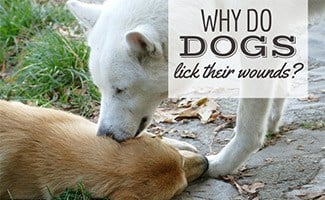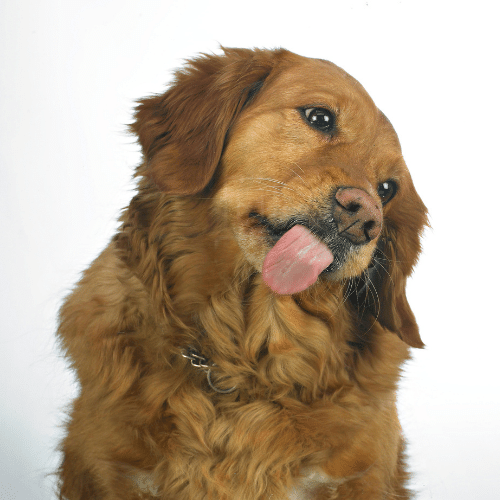
Unfortunately licking can reopen the wound and lead to infection. The enzymes in dog saliva help destroy the cell walls of dangerous bacteria.

In combination with these techniques engage your dogs attention to keep its mind off the wound as much as possible while it heals.
Is a dog licking your wound good or bad. While wound licking is often completely condemned by vets and at the same time almost ritualized by many natural healers there is no simple answer to the question Is wound licking in dogs good or bad Why Dogs Lick Their Wounds It is not only do dogs have a natural instinct to immediately lick any wound inflicted on them. Unfortunately although dog saliva does have some healing properties the risks carried by allowing dogs to lick wounds are simply too high to warrant licking as a healing tool. Wound licking is an instinctive response in humans and many other animals to an injury.
Dogs cats rodents and primates all lick wounds. There is a common folk belief that animal saliva especially that of Dogs has healing properties for human wounds. Evidence for this comes from a number of historical traditions.
The benefits of moderate wound licking. The enzymes in dog saliva help destroy the cell walls of dangerous bacteria. Lactoferrin and other antibacterial and anti-viral compounds can also be found in saliva.
Licking a wound delivers protease inhibitors and growth factors which promote wound. Also once a dog begins licking at something we often see a vicious cycle of licking worsening of the wound and more licking until your dog is making a bigger possibly infected wound. So while a little licking may be beneficial its easy for it to turn into a lot of licking which is harmful.
Should Dogs Be Allowed to Lick Their Wounds. Your veterinarian tells you to avoid letting your pets lick the faces of the family. She lists the numerous parasites and bacteria possibly present in pet saliva that may affect family members.
Yet recent research suggests that the ancient practice of dog licking may indeed aid wound healing. Depending on the wound your dogs licking can be positive or negative. Canine saliva can be helpful in cleaning your wound and even healing it.
It is said that their saliva may have antimicrobial and healing properties. Yet it may be important to not let your dog go too crazy with licking away at your wounds. Although your dog means well when it tries to lick your wounds canine saliva can cause infections in humans.
As dog bites carry risk of infection so does licking. It is rare for dog saliva to cause serious injury but it has in more than one case. Reallydont let your dog lick your woundthey have so much bacteria and germs in their mouthsI know he means wellbut thats why if your dog has an op or wound the vet gives you one of those lampshade things to put on him so he cant lick his wound.
I know in the wild that dogs and other animals lick their wounds but what else can they do. Everybody does it humans dogs virtually anyone with a tongue and saliva. Theres even a widely used idiom lick your wounds which means to.
Is it OK to let a dog lick your wounds. Not only does licking potentially introduce infection but the act of licking can break down tissues and suture. Many people still feel that as a natural response of a dog to a wound it is a good idea.
It isnt a good idea to let your dog lick your wounds and it really isnt a good idea to let. The family dog however stood up and began to lick the bleeding knee. This appeared to bother the mother much more than the wound itself and she shooed the dog away with a look of disgust.
But when dogs and cats are truly injured allowing them to lick their wounds can do more harm than good. Like most animal activities wound licking has its roots in behavior that would be beneficial under different circumstances. When a wild animal licks its.
It isnt a good idea to let your dog lick your wounds and it really isnt a good idea to let him lick his own. Despite the suggestion that there may be bactericidal benefits the trauma caused by the friction of licking is destructive to the healing process. Your best bet on a wound is to consult a veterinarian for your dog or physician.
Unfortunately licking can reopen the wound and lead to infection. A cone or collar is the traditional way to keep a dog from licking a wound. You can also try covering the wound with a sleeve or strong bandage.
In combination with these techniques engage your dogs attention to keep its mind off the wound as much as possible while it heals. At the very least the dogs licking cleanses the area. The more a dog licks the more dirt and loose skin will adhere to the saliva on its tongue and be removed from the open sore.
Theres even some anecdotal evidence that a dog licking the wound makes it feel better. It has been long observed that the licking of their wounds by dogs might be beneficial. Indeed a dogs saliva is bactericidal against the bacteria Escherichia coli and Streptococcus canis although not against coagulase-positive Staphylococcus or Pseudomonas aeruginosa.